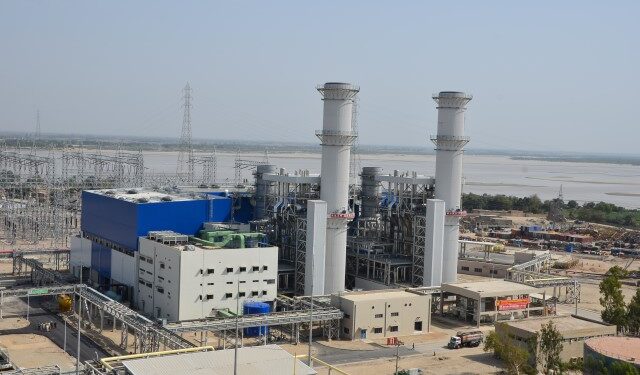ISLAMABAD : The Central Power Generation Company Limited (CPGCL) has sought Power Division’s nod for disposal of Gencos old and dysfunctional power plants of 1753 MW capacity to expedite the process as per directions of Prime Minister, Shehbaz Sharif.
Sources told Newzshewz that Chairman CPGCL Board , Syed Tahir Nawazish, in a letter to Power Division has cited the reference to the instructions issued by the Ministry of Energy (Power Division) regarding the disposal of old and defunct power plants conveyed on May 07,.2024 and subsequently forwarded by GHCL of May 10, 2024. These instructions pertain to the disposal of the following old and defunct power plants under CPGCL (GENCO-II): (i) TPS Guddu Block 3 and 4) (1-4) units of 640 MW;(ii) TPS Quetta( 1-6) units of 88.4 MW; and( iii) TPS Sukkur (1-4) units of 50 MW.
The Board of Directors (BoD) of CPGCL, in its 174th meeting held on May 28, 2024, deliberated on the instructions from the Power Division and acknowledged the importance of disposing of major assets, specifically the old and defunct power plants of the company. The BoD emphasized the necessity of completing the following legal procedures requirements before reaching a final decision on the disposal of the company’s major assets: (i) the declaration of old and defunct power plants of CPGCL as scrap requires Federal Government approval under Chapter 6 clause 17(1) of the State-Owned Enterprise (Governance and Operations) Act, 2023 and ;(ii) proposals for sale of sizeable assets and sale of assets of the company, requires the approval of the Board with a three-fourths majority in the presence of the nominee director representing the Power Division, including his vote and consent.
In the meantime, considering the importance of the matter and to save time and resources, the BoD CPGCL directed the management to request GHCL to initiate the process for the appointment of an SBP-approved evaluator and engaging the services of a third-party consultant.
According to the decision of the 174th BOD meeting, the Board’s concerns and requirements were subsequently conveyed to the Power Division of through a letter of May 29, 2024 regarding the disposal of old and defunct power plants, but no response has so far been received.
Once again, the BOD CPGCL, in its 175th meeting, held on July 01 & 02, 2024, deliberated on the instructions of the Ministry of Energy (Power Division) conveyed through a letter of May 7, 2024 regarding the disposal of old and defunct power plants. During the meeting, the BoD CPGCL principally agreed to initiate the process for the disposal of old and defunct power plants of CPGCL with the understanding that the Power Division will clarify that the Federal Government has approved these instructions otherwise the Power Division will obtain and arrange the Federal Government’s approval as per Chapter 6 clause 17(1) of the State-Owned Enterprise (Governance and Operations) Act 2023, in due course.
Additionally, the BoD CPGCL entrusted GHCL with the responsibility of initiating the disposal process at a centralized level and authorized the CEO CPGCL to take all necessary actions in compliance with applicable laws, rules, and regulations.
Pursuant to the decision of the 175th BoD meeting, the BoD CPGCL reiterated its request to the Power Division on July 04, 2024, seeking Federal Government approval for the disposal of old and defunct power plants to enable further action by the Board. However, no response has been received to date.
Meanwhile, progress on the matter was ongoing at the GHCL level. Subsequently, revised timelines for the disposal of GENCOS’ redundant plants, as approved by the Prime Minister of Pakistan, have been conveyed by the Power Division on December 20, 2024, for implementation at the GENCOs level.
The BoD CPGCL, in its 181st meeting, held on December 25, 2024, reviewed the revised timelines, as approved by the Prime Minister of Pakistan for the disposal of GENCO-II redundant plants. On the desire and direction of the Power Division, two additional plants, 600MW (GE Block) and 415MW (Siemen Block), have been included in the disposal process based on the assumption that the Power Division considers these plants redundant as per the Cabinet Committee on Energy (CCoE) decision dated September 10, 2020.
However, it was noted that these plants (600MW and 415MW) have not yet been de-licenced by the regulator, NEPRA, and CPGCL has already applied for an extension of their generation licences. Written confirmation from the Power Division has been to clarify the status of these plants within the disposal process. To avoid further delays, the disposal process has been initiated for the following five plants of CPGCL: (i) (i) TPS Guddu Block 3 and 4) (1-4) units of 640 MW;(ii) TPS Quetta( 1-6) units of 88.4 MW; and( iii) TPS Sukkur (1-4) units of 50 MW;(iv) TPS Guddu, Block 1, 415 MW CPP Siemens Block( 11-13) units of 415 MW ; and (v) TPS Guddu Block 2, 600 MW CPP(GE Block) ( 5-10) units of 600 MW.
Acknowledging the significance of this matter, the BoD CPGCL has directed the management to expedite the appointment of State Bank of Pakistan-approved evaluators to assess and verify the base value of these plants. Additionally, the process for engaging consultancy services of M/s NESPAK, which is already at an advanced stage, should also be accelerated. The BoD CPGCL has also emphasized the management’s expeditiousness in implementing the revised timelines approved by the Prime Minister.
The BoD CPGCL noted with concern that, despite multiple requests to the Power Division, the Federal Government’s approval under the SOE Act, 2023 for the disposal of old and defunct power plants has not yet been received. In the absence of this approval, the CPGCL has to undertake the following due process for declaring these plants as scrap and initiating their disposal in accordance with applicable rules, regulations, and laws in order to ensure transparency, compliance with legal requirements, and protection of shareholders’ interests: (i) prior to disposal, the power plants must undergo an independent evaluation by a qualified third party to assess and determine their technical and financial viability/feasibility;(ii) the disposal process will be conducted in accordance with the principles outlined in the WAPDA Material Disposal Procedure, 2006, ensuring compliance with established
protocols ;(iii) under Section 183 of the Companies Act, 2017, the Board of Directors cannot dispose of the company’s substantial assets, which are 25% of the company’s total assets, unless the disposal is approved by the shareholders in the Annual General Meeting (AGM)/Extra- Ordinary General Meeting (EOGM) through a special resolution (requiring at least 75% of the votes of members present and eligible to vote) ; and (iv) according to Chapter 6 Clause 22(2) of the State-Owned Enterprises (Governance and Operations) Act, 2023, the disposal of major assets, such as power plants of the company, can only be approved by the Board with a three-fourths majority in the presence of the nominee director representing the Power Division, including his vote and consent.
The BoD CPGCL discussed that the Board had initiated the disposal process for old and defunct power plants based on the assumption that the Federal Government would formally declare these plants as scrapped. As a result, the BoD did not initiate the disposal process and instead approached the Power Division to convey the formal decision of the Federal Government in this regard. It was noted by the Board that in case specific approval to declare
scrap and to dispose of is not accorded by the Federal Government, the Board shall have to follow WAPDA Material Disposal Procedure, 2006 which may take several months.
The BoD CPGCL further noted that the Chapter 6 clause 22 (2) of the SOE Act, 2023 requires the presence of the nominee director representing the Federal Government, including his vote and consent which in this case is the nominee director of the line ministry, Power Division. The presence and vote of the nominee of the Power Division are mandatory in cases that include any proposal for sale of sizeable assets and sale of assets of the company. Due to the absence of the nominee director of the Power Division during the 181st meeting, the Board was unable to independently decide on the disposal of any company assets. However, to save time and align with the timelines conveyed by the Power Division, the BoD CPGCL has instructed the CPGCL management to simultaneously initiate the processes for appointing an SBP-approved evaluator and engaging M/s NESPAK (The contract with M/s NESPAK has been signed on, December 27, 2024).
The e disposal process for three plants was-previously delegated to GHCL under the assumption that these were excluded tom the list in 2020, although they were not officially declared as scrapped. To prevent delays, two additional plants have now been included in the disposal process, pending formal declaration as scrapped by the Federal Government.
The CPGCL has sought Power Division’s clear nod on the following: (i) the power plants that are required to be declared as scraped with the approval of the Federal Government in terms of Chapter 6 clause 22 (2) of the State-Owned Enterprise (Governance and Operations) Act, 2023 ;(ii) in case the approval of the Federal Government is not available to declare any of the plants as scraped, allow CPGCL to initiate the process as per the WAPDA Material Disposal Procedure 2006, Companies Act, 2017 and the State-Owned Enterprises (Governance and Operations) Act, 2023. However, it must be noted that under such a process, CPGCL cannot meet the approved timelines and ;(iii) the representative of the Power Division, as a shareholder, in terms of Chapter 6 Clause 22 (2) of the State-Owned Enterprises (Governance and Operations) Act, 2023, may be ensured during meetings of the BOD.
Ends













